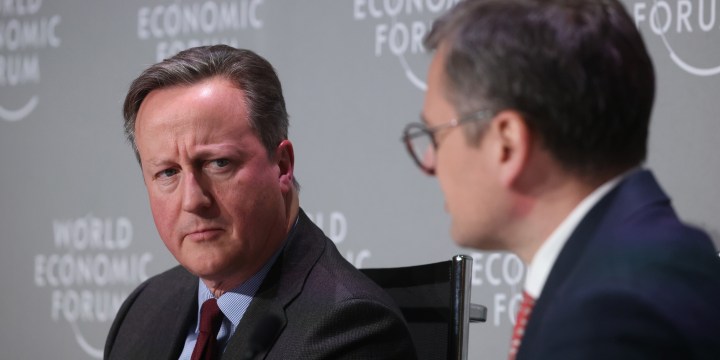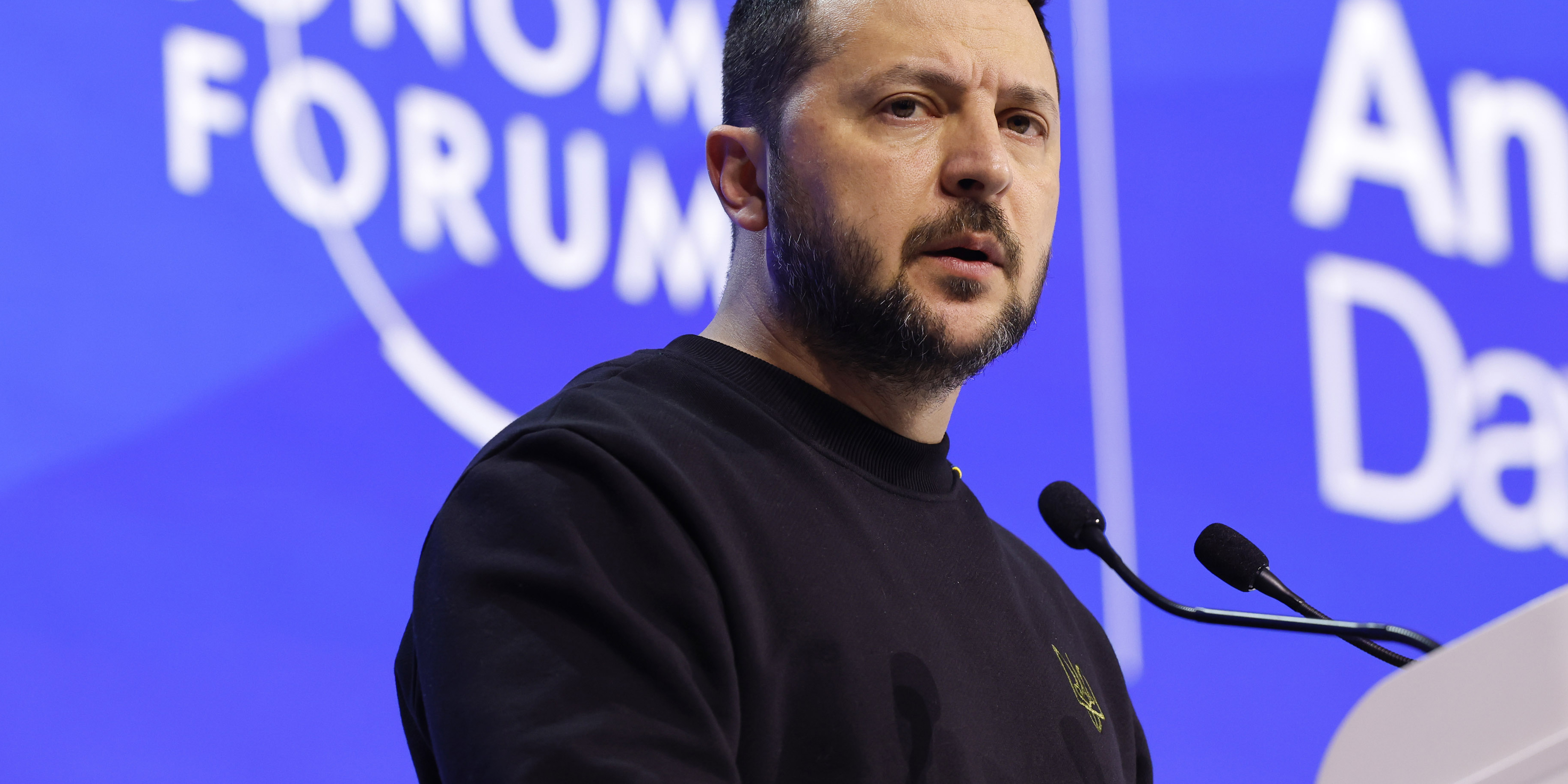BUSINESS REFLECTION
After the Bell: Davos, Day 3: Don’t cry for me, Ukraine

One of the joys of Davos is its chance, serendipitous meetings – one evening I found myself sitting opposite an official from Ukraine at a dinner.
It’s a common view that the war in Gaza has, or might, or will, eclipse the war in Ukraine, not least because it’s a fear expressed by Ukrainians themselves. That might be the case, but I suspect it’s more about the circumstances of the conflict.
The zero-line – the point at which the military forces of both sides meet – has been practically static for the entire European summer. The much-heralded offensive the Ukrainians were planning has not transpired.
And the much-heralded counteroffensive the Russians promised has not only not transpired, but has been brutally beaten back.
Military experts point out that not only has the situation on the ground frozen, literally and figuratively, but the distance between the two forces and the zero-line has increased.
What that means is that the effective firepower is now so mighty that forces need to pull back further to stay safe. And it means that if either side tries to push forward, the losses would be so extreme as to make the effort pointless.
In this context, the battle is being pushed into the air. So far this month, Russia has launched 35 Shahed-136/131 drones; 99 missiles, including 70 Kh-101/Kh-555/Kh-55 cruise missiles; 12 Iskander-M, S-300, or S-400 missiles; 10 Kh-47M2 Kinzhal ballistic missiles and four Kh-31P anti-radar missiles.
As a consequence, air defence is becoming more critical.
The Ukrainian military said they have intercepted 72 out of the 99 missiles fired by Russia, as well as all the drones. A Ukrainian government delegate showed me the app that almost every Ukrainian has on their phone, which is similar to EskomSePush; it alerts residents to the dangers, shows where attacks happened, and warns of imminent attacks. Ukrainians now have spare beds in their bathrooms, the most secure room in the house.
Peace talks
The World Economic Forum meeting in Davos began with a meeting between a host of countries and Ukraine on the subject of peace talks.
This was a follow-up meeting and, in a sense, seemed a bit pointless; Russia was not invited and China didn’t attend.
The 10-point “peace formula” placed on the table by Ukraine is more like a list of demands than a plan for peace. They include the expulsion of all Russian forces from Ukraine, reparations and a war crimes commission.
The Russian responded that the talks were “absurd” and “pointless”.
So why do it? It was an effort to prepare for a situation in which real negotiations would occur and to expand the group of interested parties, and in this, it was pretty successful.
Ignazio Cassis, the Swiss foreign minister, said that 83 delegations were on hand for the talks in Davos, compared to the 65 countries in the last round in Malta. The first meeting had 15. And yes, a South African representative was there, as was one from Brazil, India and Saudi Arabia.
The increasing size of the delegation demonstrates the realisation that there is a real danger this could become an endless, frozen conflict.
Interviewed at the conference, US foreign secretary Antony Blinken was asked if he saw the possibility of a ceasefire in the near term. His answer? “At this moment, I don’t see, but we are open to it.”
One of the joys of Davos is its chance, serendipitous meetings. One evening I found myself sitting opposite an official from Ukraine at a dinner. I’m not sure what the protocol was at the function, which was itself pretty private, so allow me to dispense with names and pack drills.
But it was fascinating to hear an honest assessment of the situation from a senior Ukrainian official.

Ukrainian President Volodymyr Zelensky delivers a special address on the opening day of the World Economic Forum in Davos, Switzerland, on Tuesday, 16 January 2024. (Photo: Wermuth / Bloomberg via Getty Images)
First, President Volodymyr Zelensky’s popularity is slipping, albeit from a very high level. At the start of the war, his popularity was about 90%; it’s now probably about 70%. (Polls currently put it higher.)
Second, there is lots of talk about boosting the Ukrainian economy, but it’s an incredibly difficult thing to do. To invest, most businesses would like a fairly predictable decade-long outlook. That’s just not going to happen.
Frozen Russian reserves
But there is one economic aspect to the war – the Ukrainians want the roughly $360-billion Russian reserves frozen by largely European governments at the start of the war to be seized and handed over to them.
That would be some transfer – it’s one-and-a-half times Ukraine’s GDP.
Some European governments are for the idea, including the UK – the US is also in support. But some are against it, including Germany, Italy and France. They are worried this could reduce the safe-haven status of European banks.
There is one partial solution here, and that is to keep the assets and hand over the interest, which is attractive at now higher European interest rates.
Even that could make a huge difference to the war because, at some point, Ukraine is going to have to develop a local defence industry that can defend the country effectively without needing to be dependent on Europe and the US.
Blinken made the point that the war had not been entirely static; the need on both sides to pull apart the battle lines actually helped the Ukrainians in one respect – the Black Sea is now once again open to commercial sea traffic (if you are brave enough to take the risk). Grain exports from Ukraine are now back on the move.
But the big problem for Ukraine is China; the destination of most Russian oil and gas at discount rates. China is also the clearing house for Russian banking and commerce and the holder of its financial reserves. The reason financial pressure on Russia is not working is because of China.
In his interview with New York Times columnist Tom Friedman, Blinken was asked whether, in his meetings with Chinese premier Xi Jinping, he didn’t just say: “Russia’s a loser… why are you hanging out with losers?” Blinken replied, tongue in cheek: “Sometimes in diplomacy, the terminology is not like journalism.”
Perhaps it should be. DM



















 Become an Insider
Become an Insider
It seems the Ukraine’s “battle push” is stalling, and the “new kid on the block” is the Israel-Gaza conflict.